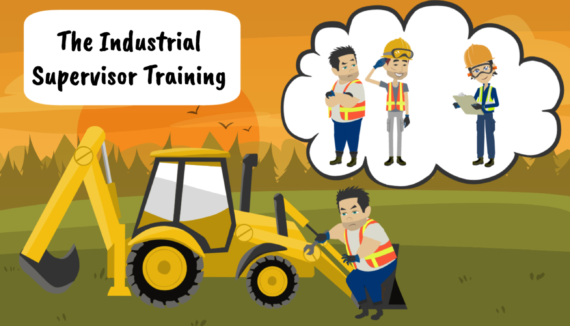Introduction to the Industrial Supervisor Training
Today’s Supervisors; More Responsible than Ever.
Supervisors must ensure the health and safety of their workers, get the work done efficiently and deliver quality workmanship in order to fulfill today’s industry demands.
This course is intended for new or experienced supervisors, workers transitioning into supervisory roles and first line managers responsible for field supervisors.
Industrial Supervisor Course
This informative, customizable Industrial Supervisor Course provides new and experienced supervisors with the tools they need toto be successful in industry today. This course not only explains to supervisors what their responsibilities are, but also how to achieve the requirements set out by employers, Occupational Health and Safety Regulations and industry safety standards.
Who should take this program
This course is intended for:
- New and experienced supervisors, workers transitioning into supervisory roles and firstline managers responsible for field supervisors.
- Anyone working towards any certificate in safety or is maintaining safety designations
Learning objectives
This course covers many aspects of what makes an industrial supervisor effective in dealing with workers, workloads, tools and equipment while being compliant to OH&S law. These nine flexible training modules can be customized to suit your needs in a three, two or one day course.
1.0 Introduction to the Industrial Supervisor
- The supervisors responsibilities
- Workplace culture
2.0 Motivation and Leadership
- What motivates workers
- The ABC’s
- The power of consequence and expectations
- Delegation
- Transition from peer to supervisor
3.0 Occupational Health and Safety Law
- Saskatchewan Employment Act Part III OH&S & Regulations
- Strict liability
- Duties of employers, supervisors, and workers
- Case studies
- General duties of contractors
- Training
- Getting your ducks in a row
- Measuring safety
- Rights of workers
- Workers’ compensation process
- Workplace harassment
4.0 Communication
- Communication and interpersonal skills
- Removing communication barriers
5.0 Managing Conflict and Problem Solving
- Conflict management styles
- Problem solving situation
6.0 Inspections and Follow-up Actions
- Mining regulations activity
- The importance of follow-up actions
7.0 Hazard Recognition and Control – Pre-Job Planning
- Hazard recognition and control
- Field level risk assessments
8.0 Performance Management and Corrective Feedback
- The supervisor’s daily journal
- Giving corrective feedback
- Planning a serious discussion

